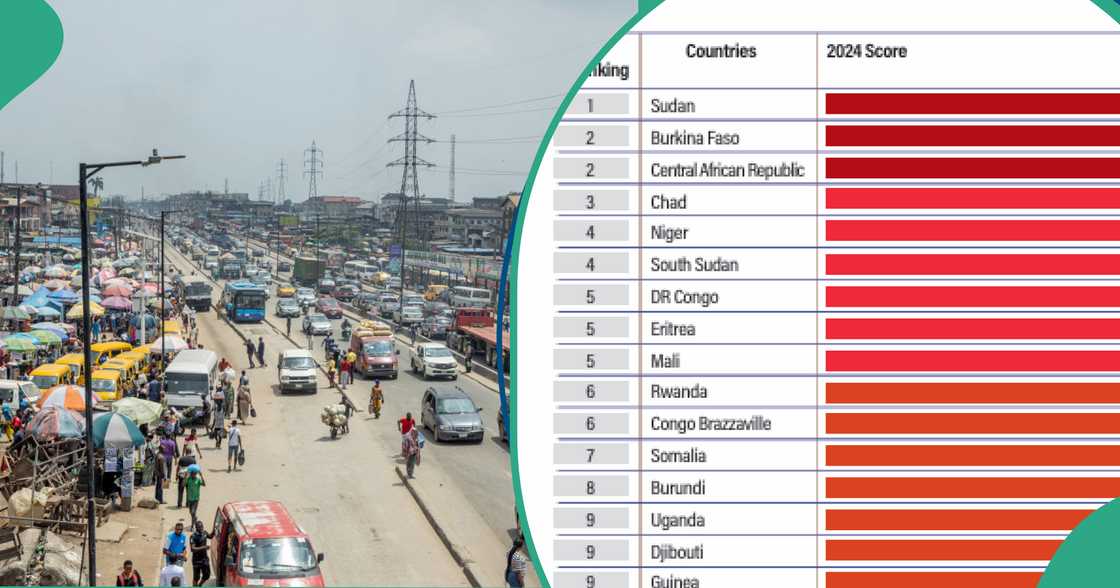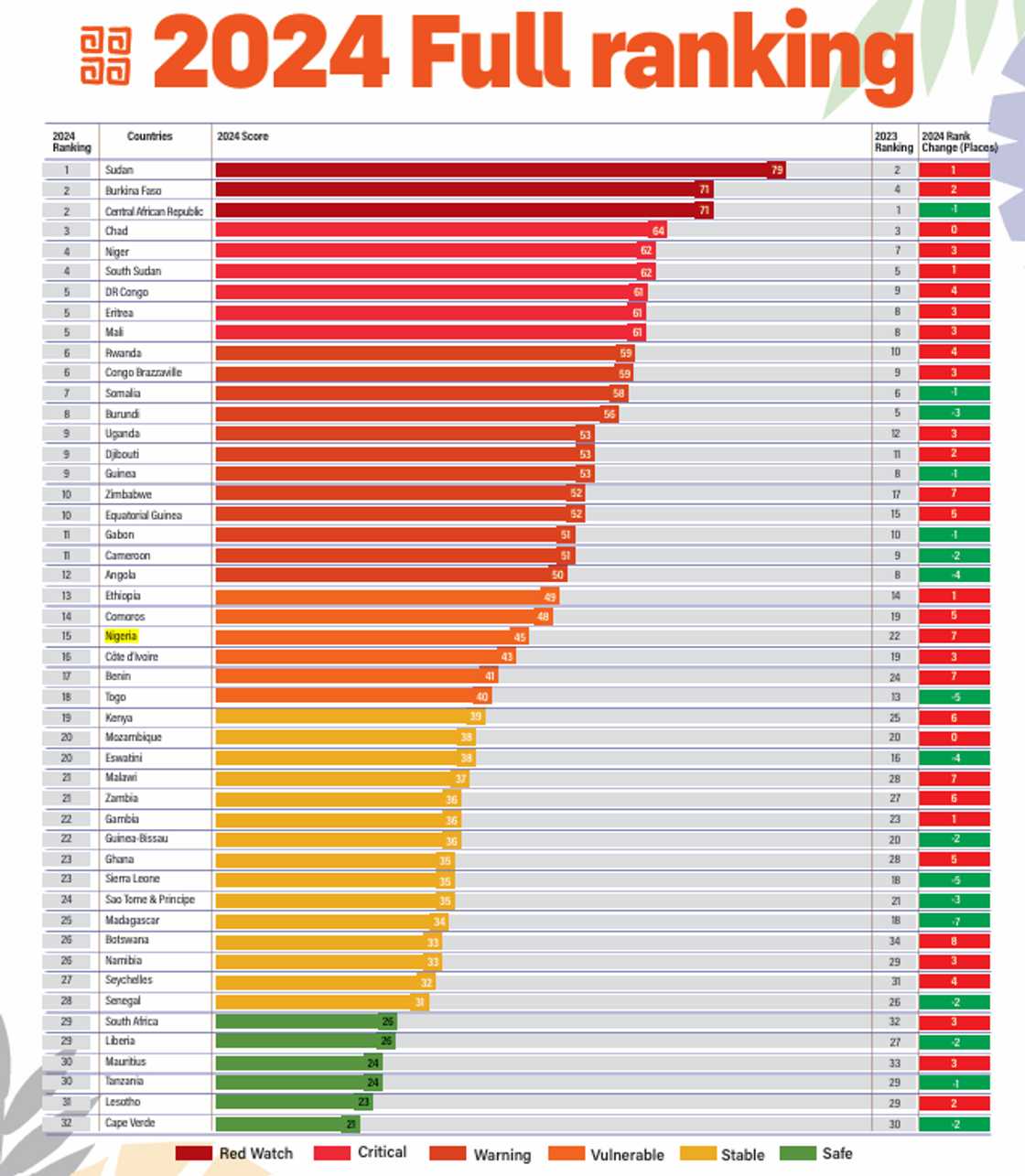Naira, Inflation Pushes Nigeria Into ‘Vulnerable Status’ on Africa Country Instability Risk Index
- The state of the economy has pushed Nigeria into a vulnerable status in the African Country Instability Risk Index (ACIRI) for 2024
- The ACIRI developed by SBM Intelligence assesses the political, economic, and social factors contributing to the region’s political instability
- Bunmi Bailey, head of research, explained to Legit.ng what Nigerians should do to reverse poor ranking
Legit.ng journalist Dave Ibemere has over a decade of business journalism experience with in-depth knowledge of the Nigerian economy, stocks, and general market trends.
Nigeria’s economic challenges, marked by the depreciation of the naira and persistent inflation, have contributed to its slide into a "vulnerable status" on the African Country Instability Risk Index (ACIRI) for 2024.
The index compiled by SBM Intelligence scored Nigeria's risk level at 45, reflecting a change of -6 compared to 39 in 2023.

Source: Getty Images
The report noted that Nigeria is faced with a worsening security environment, rising cost of living, and economic struggles.
In Nigeria, the report said:
"Nigeria’s economy continues to worsen, marked by rising food inflation, persistent insecurity across all geopolitical zones, and a growing number of people falling into extreme poverty.
"The country is more polarised than ever following the 2023 election and the unpopular reforms introduced by the new government, such as the removal of petrol subsidies, which have worsened living conditions and forced many businesses to close."
Sub-Saharan Africa showed a modest improvement overall, with an average score of 45.4%.
Regional trends and risks
The ACIRI report highlights a varied picture across SSA’s regions:
- Southern Africa: The most stable regions, Botswana and Angola, are leading in attracting investment. However, challenges like economic inequality in South Africa persist.
- Central Africa: The least stable, plagued by coups, ethnic tensions, and reliance on volatile oil revenues. Conflicts in the Democratic Republic of Congo and terrorism by Boko Haram amplify risks.
- East Africa: A region of contrasts, with rapid economic growth overshadowed by ethnic tensions and political protests. Opportunities in agriculture and telecommunications remain significant.
- West Africa: Beset by security threats and climate challenges, but with untapped potential in tourism and mining.

Source: Getty Images
Bunmi Bailey, Head of Research SBM intelligence, explained to Legit.ng that the ACIRI underscores the need for urgent reforms in Nigeria.
She noted that diversifying the economy, stabilising the naira, and addressing insecurity are pivotal to reversing the negative trend.
Bailey explained:
“The framework in its second edition assesses the risk of coups d’état using factors such as ethnic tension, the country’s history of coups, dominant ethnic groups, economic concentration, ageing leaders and monoproduct, bi-product or multi-product economies.
"Key findings: SSA recorded an average of 45.4% in 2024, an improvement from 47.7% in the previous year. Of 48 countries, 31 reported improved performance, while the rest deteriorated. Angola, Burundi, Chad, Togo, and Madagascar were the biggest gainers.
"Nigeria, Africa’s fourth largest economy, ended the year with a score change of -6. It means that Nigeria has been less secure."
Cost of cooking a pot of Jollof rice
Earlier, Legit.ng reported that the average cost of making a pot of jollof rice for a family of five has risen once again, and it is over N20,000 now.
This was disclosed in the latest Jollof index report published by SBM Intelligence for 3rd quarter of 2024.
Nigerians have been battling a rise in food prices, which has caused significant pressure on household finances.
Proofread by Kola Muhammed, journalist and copyeditor at Legit.ng
PAY ATTENTION: Сheck out news that is picked exactly for YOU ➡️ find the “Recommended for you” block on the home page and enjoy!
Source: Legit.ng


